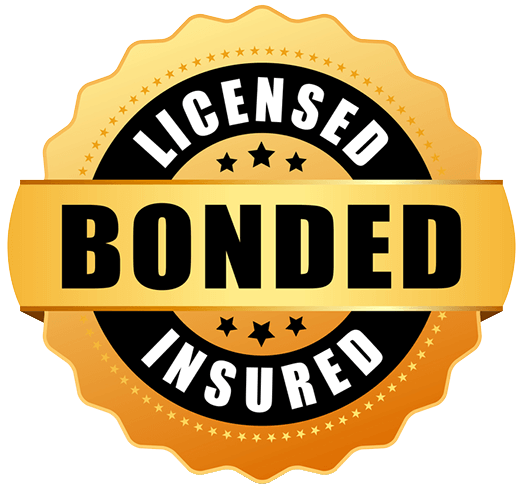Big, bad problems can happen to you – bankruptcies, divorces, law suits, non-payment of taxes. These are big problems that can affect your credit score in as big way. If you have faced a large problem that has ruined your credit, you need to take action fast and work consistently to boost your FICO score:
Tip #25: If you have bad credit, establish better credit by taking out credit and repaying it quickly.
If you have terrible credit following a bankruptcy or other major financial upheaval, you may need to get back into a good credit rating by taking out a loan you can handle. Make an appointment to see your bank or bad credit lender a few months or years after the problem in question and arrange for a small loan.
You should have enough savings to pay for the loan before you do this. Pay back the loan quickly. It will not hugely boost your credit score but it will show lenders that you are having an easier time paying your bills. Taking out a small loan you can repay is part of the slow process of reestablishing good credit following a big financial problem.
Tip #26: Try secured credit if you cannot qualify for other types of credit.
Secured credit is credit or a loan which uses something as collateral. In some cases, this could be an asset like a house. In some cases, this collateral could be money frozen in an account by the bank for just such a purchase.
If you need credit following a big problem with your credit score, secured credit may be something you can qualify for. You can use this secured credit to reestablish a good credit rating so that you will qualify for other loans in the future. You may have to pay slightly higher interest if your credit score is quite low, but in the long term repaying this type of loan can improve your credit score.
Tip #27: Give it time.
Many people believe that simply paying off debts will improve their credit score at once. This is not true, unfortunately. If you have experienced a bankruptcy, have been reported to a collection agency, or have had charge-offs, the record will remain on your credit report – even after you have repaid your debts and resolved the problem.
In fact, major problems such as a bankruptcy will remain on your credit report for seven or ten years, affecting your credit score. Even if your credit problems stem from simply not paying bills on time, it will take some time for the mark to fade from your credit report and for your credit score to reflect your better repayment.
Paying off your debts and resolving problems will help your credit score (since overdue accounts will be marked as “paid” on your credit report), but only time will remove the mark of the problems from your record entirely.
This means that if you have faced a major setback such as a bankruptcy, you may have to wait in order to get the best interest rates on larger purchases. The good news is that the further away you are from a major financial problem, the less dire it appears.
For example, if you have declared bankruptcy, you can expect it to have a huge impact on your credit score for the first two years, during which time you will have a hard time getting any credit at all.
However, after two or three years, if you have been paying your bills on time, then the bankruptcy from two years ago will matter less because you have been rebuilding your credit. Your credit will still suffer – but you will slowly be starting to work your way out of the credit problem. Persistence and good financial habits will get you there.
This means that if you plan on making a major purchase (such as a house of car) that may require a loan, you should start working on improving your credit well in advance – even years in advance – of your actual purchase. This is because you simply will not have enough time to radically alter your credit score in time if you wait too long.
Even if your credit score is already fairly good, you may need to give yourself several months of time to boost your credit rating enough to get the best loan rates.
Tip #28: Contact your banks and ask credit limits to be reduced.
If your credit risk rating is poor, and especially if it has taken a beating lately due to non-payments or other problems, you can ask that your bank reduce the credit limits on your credit cards, credit lines, and other debts. You should do this if:
1) You can pay off at least 50% of your debt loads as they are readjusted. For example, if you have a credit limit of $5000 on your credit card and get it reduced to $2500, you should make sure that you can leave a balance of $1250 or less. If you owe $4000 and have no way of repaying it, getting your credit limit reduced can actually hurt you. On the other hand, if you need to get a larger loan and can pay off your credit card in full and reduce your limit to $2500, you may be able to improve your credit score in this way.
2) You have lots of credit. If you have several types of debts and credit accounts – lines of credit, credit cards, store charge cards, a mortgage, a car loan, and a personal line of credit – you may be close to overextending your credit, especially if each of these accounts is fairly large. You can’t always close down your accounts – especially if you are still paying your debts off – but reducing the limit may make you eligible for a loan should you need it.
3) You have some credit but you don’t want to close your accounts entirely because you have not had credit for very long. Sometimes, if you have several types of credit, it is not wise to close them, even if you can, since lenders like to see long-term relationships with lenders. Reducing the limits can make monthly payments more affordable and can actually give you a bigger credit boost than closing long-standing credit accounts.
4) You will not be taking out a loan very soon. In the short term, reducing your credit limits may actually lower your credit rating because your balances will make up a larger portion of a smaller credit, but in the long run smaller charge accounts will actually boost your credit score by making repayment of loans easier and by making you further from overextending your credit.
Tip #29: Start repairing your credit right away after a big financial upset.
A big financial problem is an emotional as well as a monetary burden. Plenty of debtors feel so terrible about their financial problems and so uncertain about their money that they go into deep denial, refusing to think or work on their financial problems. This is likely to only make the problem worse.
Everybody suffers from financial difficulties once in a while and every professional in the field of finance – from loan managers to bankers – knows this. Plus, financial professionals – including lenders – want your business and so are willing to work with you to help you solve your problems.
If you have had a financial problem, or are even headed towards one, start working on repairing the situation right away. If your credit is suffering because you have not paid some bills, for example, don’t make it worse by waiting until you are reported to a collection agency (by which time your credit rating will have taken an even worse hit). Instead, work on paying off your bills or arranging a payment schedule right away.
Tips #30: Consider co-signing for loans – but consider well before taking the leap.
If you have very poor credit scores following a bankruptcy or other disaster but need to get a loan, consider getting a co-signer. If your co-signer has assets or a better credit record, you may qualify for a better loan rate.
However, be wary – if your co-signer refuses to make payments, then both of you will suffer the credit fallout. Co-signers share responsibility for loans and credit – both of you will have worse credit scores if one of you does not pay.
On the other hand, if your cosigner has good credit and makes payments, then the co-signed loan can actually boost your credit score.
Tip #31: Don’t overlook bankruptcy.
A bankruptcy will affect your credit score more than just about anything. Worse, it will affect it for many years. In the first few years after a bankruptcy, you may not be able to get loans at all.
In short, a bankruptcy is a legal proceeding that either forgives you of your debts or allows you to pay off just a small fraction of your debt. It will nearly ruin your credit rating at first, but it will also allow you to dig out from overwhelming debt and reestablish a good credit rating again after years. A bankruptcy will no longer show up on your credit report after ten years.
If you are very seriously in debt and have no way of repaying your bills, a bankruptcy can help you by stopping collection call agencies and other problems. Also, if you have been very negligent in paying your large debts, your credit rating has already likely suffered greatly.
While a bankruptcy will depress it even further, at least it will give you the chance to repair your credit by giving you a “clean slate” free from large debts.
Tip #32: Don’t choose bankruptcy as an easy out.
Bankruptcy is a serious credit problem – it is not just a “ding” on your credit report – it is a huge red flag to lenders. After a bankruptcy, you will be ineligible for credit cards, many types of credit and will even be told what you can and cannot buy. The procedure of bankruptcy can also be draining. Bankruptcy should only be chosen as a last option if you really require your debts to be forgiven because you have no way of repaying them.
Tip #33: Learn from your mistakes.
Everyone makes some credit mistakes sooner or later – it is very rare for someone to go through their entire lives without at least a few dings on their credit risk record. Don’t beat yourself up over your mistakes – even if they are large ones. Instead, learn from your mistakes by analyzing them. Think of your credit mistakes as clues which can help you in the future to avoid the same problems:
-Do you develop credit problems because you overspend while shopping?
-Are you so disorganized that you forget to pay bills?
-Are your bills simply too large for your current income?
-Do you routinely get overcharged for things and fail to notice until much later?
Knowing what your mistakes are and finding solutions to the problems can go a long way towards helping you develop a good credit risk rating.


